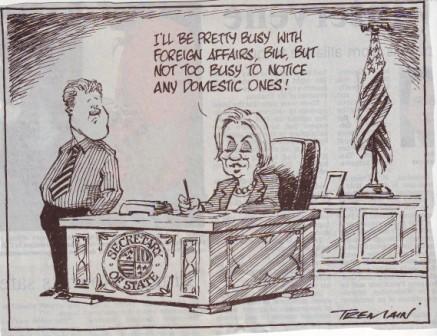John Key is number one on The Listener’s 2008 power list, up two places from 3 last year.
He’s followed by Bill English, who was at 5 last year, Alan Bollard (6), Steven Joyce (new), Tumu Te Heuheu (13), Pita Sharples (9), Rodney Hide (new), Helen Clark (1), Michael Cullen (2) and another newcomer to the list Gareth Morgan.
For the past four years the list has been a comprehensive one ranking 50 people in a variety of fields, this year’s list has the top 10 with 11 different lists of five for other categories.
They are: heroes topped by Willie Apiata VC; business & economy where Graeme Hart is number 1; Maoridom led by Federation of Maori Authorities chief executive Paul Morgan; the law where Sir Geoffrey Palmer is at number 1; agriculture topped by Landcorp chief executive Chris Kelly; health & medicine led by Health & Disability Commissioner Ron Paterson; arts, culture and entertainment with Flight of the Conchords in the top spot; science and technology where science entrpreneur Jim Watson is number 1; the media led by Dominion Post editorTim Pankhurst; environment with David Parker in the top spot; and sport topped by Sparc chair John Wells.
Some observations on the list:
* The only woman in the top 10 is Helen Clark who’s slipped from 1 to 8 and as there’s usually nothing so ex as an ex-Prime Minister she is unlikely to be in the list at all next year.
* There are only seven women among the 55 people on the other lists.
* The environment list is led by a former minister followed by Jeanette Fitszimons and Russel Norman, all of whome are now in Opposition.
* David Farrar of Kiwiblog is in the So close but missed the list category under media which reflects the growing influence of the blogosphere.
UPDATE: The list isn’t yet on line but the print edition says:
And yes, the panel did consider the bloggers, but was not convinced that any of those opinionated voices were yet having a marked influence on Main Street.
It also notes:
A total of 55 people have appeared in the Power List in the five years it has been published by The Listener. Only four people have been on all five lists: Helen Clark, Michael Cullen, Alan Bollard and Graeme Hart. Ths is the first year neith Labour supremo Heather Simpson nor All Blacks coach Graham Henry has appeared on the list.
Of the total, just 27 (17.4%) have been women. And only 16 of the total (10.3%) live in or are strongly associated with the South Island.



 Posted by homepaddock
Posted by homepaddock 
